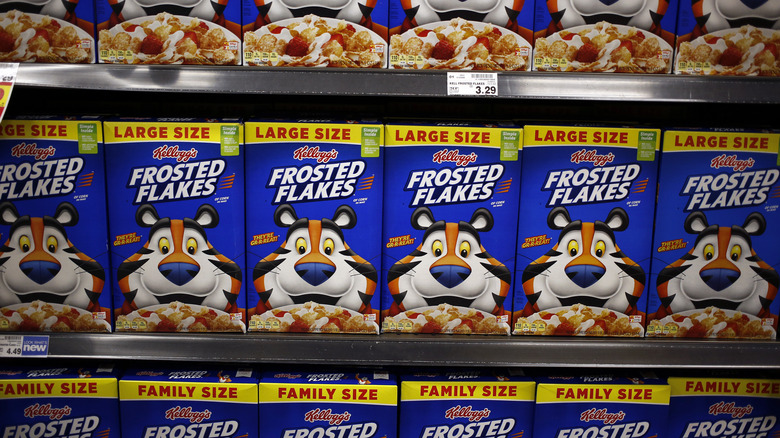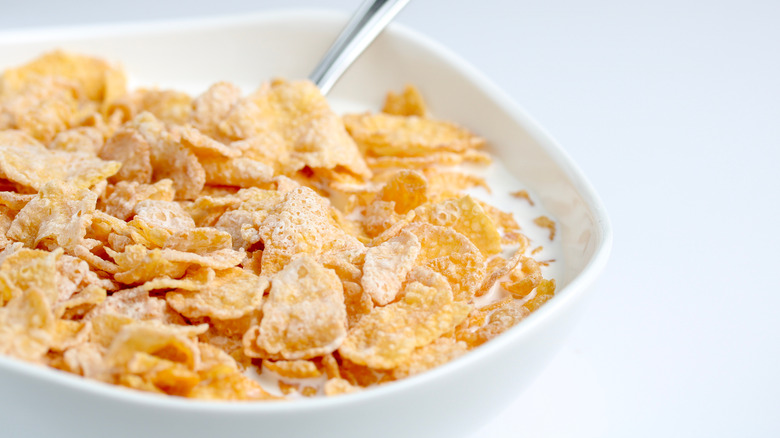The Surprising Reason Frosted Flakes Are Banned In Other Countries
Say "they're greeeaaaattt" to any person who grew up in the United States, and they'll know exactly what you're talking about. Flashbacks to Tony the Tiger and Saturday morning cartoons with a big bowl of Frosted Flakes will immediately spring into their minds.
But, for people who grew up outside of the States, these two words might not have quite the nostalgia-inducing cachet. It's not that the marketing tactics or commercials for Frosted Flakes are different in other countries, but that the cereal is actually banned in places outside of the U.S.
Specifically, in Japan and the European Union, Frosted Flakes (and Honey Bunches of Oats and Rice Krispies) are not considered legal to sell, according to Stacker. The simple explanation for this is that different countries have different standards when it comes to the ingredients and products used in foods.
The U.S.'s FDA (Food and Drug Administration) is known for being a little more liberal with food standards than other countries, but the reason Frosted Flakes is banned in other countries (and allowed in the United States) might still surprise you.
Frosted Flakes contain BHT, a food preservative and flavor enhancer, that is banned in certain countries
BHT, Butylated Hydroxytoluene (a real mouthful of a word), is a food preservative used mainly in cereals, chips, shortening, margarines, and nuts and found in Frosted Flakes. According to Science Direct, it's a synthetic antioxidant, a substance that can prevent the slow damage of cells, that is it keeps the item from going bad, but not every country has approved the use of BHT in food.
Food scientists have studied BHT for its potentially carcinogenic properties, although the evidence remains inconclusive, it hasn't stopped some countries from banning its use altogether (via Scientific American). The FDA's official stance remains that BHT is not harmful in small quantities.
However, in 2015 General Mills announced they would remove BHT from their cereals (via Scientific American). Some of their popular cereals such as Cheerios, Trix, and Lucky Charms were already BHT-free, but the move to pull it from their other brands was heavily influenced by increased public pressure about the potentially harmful effects of BHT.
Still, other cereals like Frosted Flakes (that is manufactured by Kellogg's) still used BHT to keep the breakfast staple from going stale.

